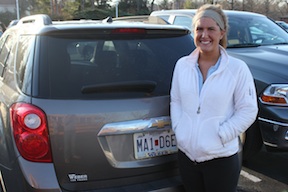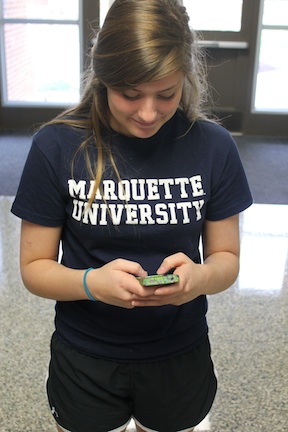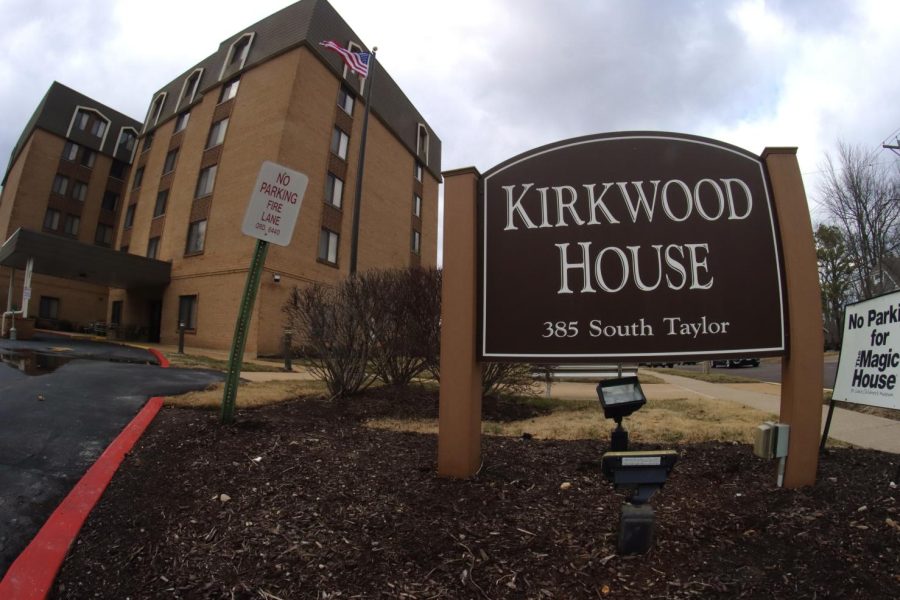Living at home in high school means dealing with parents and abiding by their rules. Whether it is arguing over a set curfew on the weekend or being forced to relinquish a cell phone at night, teens are often at the mercy of their parents’ restrictions. According to the Pew Research Publications, around 75 percent of 12-17 year-olds own a cell phone, and 88 percent of these users also utilize texting. But parental restrictions come into play when parents decide to limit the number of texts and times when teens are able to use their phones. Some parents also discourage their kids from dating, and many teens face the challenge of not being allowed to drive or get their license at the same time as their peers. KHS teens are no exception, and they all have restrictions that others can relate to.
Adrienne Meckes
Phones may be a way to stay in contact with friends and family, but for Adrienne Meckes, junior, it connects her with her parents in a not-so-pleasant way.
After she got in trouble for lying about her location while out with friends during her freshman year, Meckes’ parents began tracking her cell phone to keep track of her locations.
“They realized I was getting older,” Meckes said. “And whenever I go somewhere I say I’m not, they call me out on it.”
The tracking system operates through AT&T, and Meckes’ parents have the ability to trace any of the phones on their account. A map on her mom’s phone features a small blue dot that traces Meckes’ phone and can pinpoint her location as long as the phone is still turned on.
As the only one among her friends who has to deal with the close parental monitoring, Meckes dislikes the tracking yet became accustomed to it.
“It’s pretty accurate, I’ll tell you that. So there’s no getting around it,” Meckes said. “But I’ve gotten used to it and just know not to lie.”
Caroline Fleisher
Even if she was in the still in the middle of a conversation or text, at 9 p.m. Caroline Fleisher’s phone automatically shut off until 6 a.m.
After getting her phone at the end of middle school, Fleisher, senior, exceeded her 250-text-a-month limit multiple times. As a  punishment, her parents chose to limit the amount of time Fleisher could use her phone.
punishment, her parents chose to limit the amount of time Fleisher could use her phone.
“My parents didn’t really understand texting, so by the second time I went over [on the texting limit] my dad decided to call the company and install parental controls,” Fleisher said.
Fleisher’s phone would only function for emergency calls, so she could not send or receive texts between 9 p.m. – 6 a.m. Often she was forced to abandon a conversation in the middle of a discussion. Once she got a job as a hostess at Oceano Bistro sophomore year, Fleisher convinced her parents to drop the previous restrictions.
“When my phone would shut off and I was in the middle of an intense or angry conversation, sometimes it gave people a chance to cool down and then talk in the morning,” Fleisher said.
Natalie Archer
At 17, Natalie Archer is embarrassed. Since she was young, she dreamed of the day she could get behind the wheel. Now a senior, Archer frequently depends on her mom and friends for transportation.
“My mom doesn’t trust me,” Archer said. “That’s the main reason I can’t get my license. I’ve tried to earn it and come home before curfew a few times, but it doesn’t work.”
For Archer, the biggest barrier is when she needs to be picked up from work. At times she is waking up her mom or interrupting friends schedules just to catch a ride.
“My mom says that after spring break I’ll be able to get it,” Archer said. “But really she has been saying that forever so I guess time will tell.”
Claire Dobbs
At 15, Claire Dobbs, sophomore, is a typical teen. She goes out on Saturday nights with her friends. However she goes out knowing that she is privileged with having a late curfew. Dobbs goes out on the weekend knowing that her parents have given her freedoms rare for a sophomore student in high school.
“My parents trust me. I really haven’t given my parents a reason to take my curfew away. I have a 12 a.m. curfew and majority of my friends have an 11 p.m. curfew,” Dobbs said. “It’s kind of annoying when I’m out and they have to go home.”
However, when Dobbs hangs out with certain friends, like sophomore Luke Backer, Dobbs’ curfew is nonexistent.
“When I hangout with Luke, I don’t have a curfew. Since my parents are really good friends with his parents, they know that we won’t do anything bad,” Dobbs said.
Abby Freeman
Abby Freeman, sophomore, will be given more than just a driver’s license on April 23, her 16th birthday.
“I’m not allowed to date until I’m 16,” Freeman said. “I can’t go out to eat with a boy or even be alone with one.”
 Freeman’s parents set this guideline at a young age with the intent to protect their daughter.
Freeman’s parents set this guideline at a young age with the intent to protect their daughter.
“It doesn’t really bother me. I’m still kind of young and have my whole life ahead of me to date,” Freeman said.
Being the only one of her friends unable to date until she is 16, Freeman sometimes feels like she is at a disadvantage.
“Because I do follow this rule, a lot of possible relationships are stopped simply because we can’t hang out,” Freeman said.
With her 16th birthday soon approaching this rule will soon be gone.
“I’m looking forward to it of course,” Freeman said. “I know it isn’t going to be life-changing or anything but it will be nice to have that freedom.”















